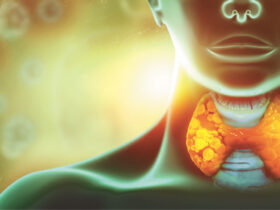An Alternative Therapy also Helps with Social Anxiety, OCD and Phobias
 In a series of ongoing randomized tests, Ketamine therapy has become more widely accepted for its capacity to revamp the brain’s depressive episodes rapidly. Over the past several years, many physicians have studied the effects of Ketamine on depressed patients including those with PTSD and bipolar disorder. A board-certified anesthesiologist, Dr. Steven Reichbach of Gulf Coast Ketamine Center, has extensive experience in managing his patients that benefit from this therapy, and he consistently sees the value of Ketamine IV treatments in his patients that suffer from depression on a daily basis.
In a series of ongoing randomized tests, Ketamine therapy has become more widely accepted for its capacity to revamp the brain’s depressive episodes rapidly. Over the past several years, many physicians have studied the effects of Ketamine on depressed patients including those with PTSD and bipolar disorder. A board-certified anesthesiologist, Dr. Steven Reichbach of Gulf Coast Ketamine Center, has extensive experience in managing his patients that benefit from this therapy, and he consistently sees the value of Ketamine IV treatments in his patients that suffer from depression on a daily basis.
In addition to depressive disorders, there has been a lot of new information and studies on the effects of IV Ketamine therapy for treating treatment-resistant depression as well other mental health disorders such as social anxiety, OCD, and phobias. For people suffering from social anxiety, OCD and phobias, its emotional effects can be crippling. Everyday interactions may cause such distress in these people that it interferes with opportunities for employment, positive interactions with friends and family, and for students, not being able to reach their full academic potential in the classroom. These people may exhibit physical manifestations of their anxiety in the form of sweaty palms, high blood pressure and a racing heart. Over an extended period of time, these symptoms not only cause mental anguish but also affect one’s overall physical health.
The mainstay of treatments up to now has been antidepressants, anxiolytics, and behavioral therapy. For up to 50% of patients, these are ineffective in treating their social anxiety adequately. Recently, the results of a double-blind, placebo-controlled study with 18 patients diagnosed with Social Anxiety Disorder using IV Ketamine were published in the journal Neuropharmacology. What they found was that people responded to Ketamine. They had significantly less anxiety which lasted up to 28 days. Patients who received one IV Ketamine infusion, had less social anxiety, avoidance, and fear when compared to patients who received a placebo. For patients who have not responded to more conventional treatment, IV Ketamine can hold a great deal of promise.
What is Ketamine?
Back in the 1960’s Ketamine was developed to treat wounded U.S. soldiers that were serving in the Vietnam War. In the 1970’s, Ketamine was the anesthetic of choice for surgery, and in the 1980’s it became a popular street and club drug because of its “out of body” sensation that its users experienced.
How does Ketamine Work?
Ketamine works by creating new connections in parts of the brain that control mood and emotions. These new neurological connections help the brain to send positive signals to the psyche, along with beneficial physical conditions to the body. The effect is notable within hours, but most patients report the results are instantaneous. These astonishing changes are visible in brain scans and imaging, and the results are long-lasting.
In recent FDA and other professional associated studies, patient results with ketamine show:
• Reduced pain
• Decreased depression
• Diminished suicidal thoughts and episodes
• Rapid ability to reverse depression and its symptoms
With our ongoing drug-related crisis, ketamine therapy can reduce the risk of opioids, benzodiazepines and other narcotic addictions. Physicians are often overprescribing these types of highly addictive drugs to help minimize or mask patient’s chronic pain, depression or other ailments. With Ketamine therapy, the treatment is safe, non-habit forming and highly effective.
How is Ketamine Administered?
During the treatment, the initial infusions usually take place over approximately 2 weeks with 6 infusions that are administered every other day.
Ketamine IV therapy impacts both mood and anxiety and can result in positive treatment outcomes for the following disorders:
• Severe or Chronic Depression
• Chronic Pain
• Bipolar Disorder
• Obsessive Compulsive Disorder (OCD)
• Post-Partum Depression (PPD)
• Post-Traumatic Stress Disorder (PTSD)
• Produces Rapid Onset of Neural Connections
One drug with no side effects or long-term adverse reactions is the answer many people are seeking to find. Unlike antidepressants that need to be taken at least once daily, the best part about Ketamine therapy is that after the initial treatment phase, most patients only need the injection once every one to two weeks.
If you or someone you know is experiencing depression, phobias, OCD, or social anxiety, please contact Gulf Coast Ketamine today at 941-213-4444, or visit their website at findpainrelief.com
Steven Reichbach, MD
Board-Certified Anesthesiologist
President and Founder, Gulf Coast Ketamine Center
Lolita Borges, RN
Clinical Director, Gulf Coast
Ketamine Center
Gulf Coast Ketamine
2415 University Parkway, Building #3,
Suite 215, Sarasota, FL 34243
941-213-4444 | findpainrelief.com







